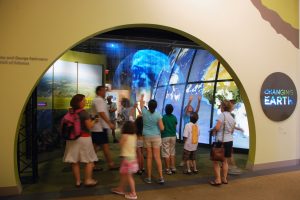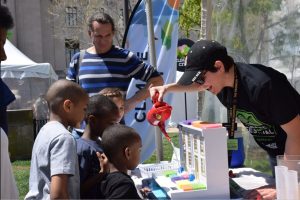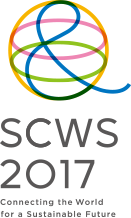Science centers and museums celebrate ISCSMD 2019
From original videos to free admission days to special family activities, museums marked International Science Center and Science Museum Day in a wide variety of ways:
Domus, Museos Científicos Coruñeses in A Coruña, Spain, opened a new exhibit, Bocados, with several activities on water, equality, and health: preparing meals, an interactive screen display, and origami.
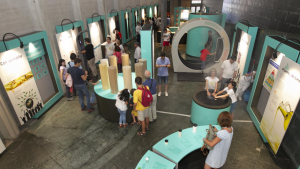
Mid-Hudson Children’s Museum in Poughkeepsie, New York, marked the day with special activities to promote awareness around global sustainability and climate resilience.
Pavilhão do Conhecimento in Lisbon, Portugal, created a science café and invited young visitors to participate in a game to learn about nutrition.
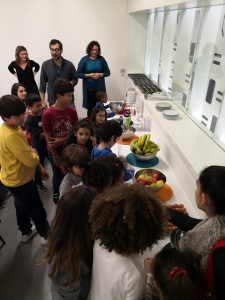
Planetário – Casa da Ciência in Braga, Portugal, held educational planetarium and laboratory activities exploring quality education, life below water, and life on land.
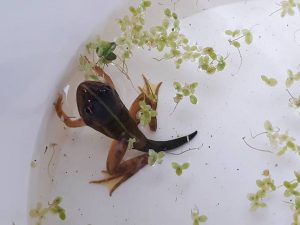
Science Centre Singapore celebrated with a fun game: visitors collected stamps at selected exhibitions, shows, and activities to redeem for a themed gift.
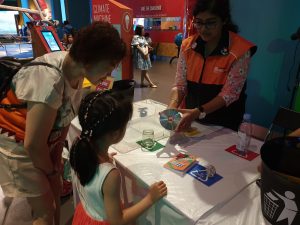
Science North in Sudbury, Ontario, Canada, welcomed visitors with free admission to the center’s special interactive workshops, Planetarium, and giant screen cinema.
WOW! What an amazing day exploring and celebrating science! A huge thank you to everyone who came out today for International Science Centre and Science Museum Day! It was a blast! ???#ISCSMD @ScienceCenters pic.twitter.com/0LlbWx52Sc
— Science North (@ScienceNorth) November 10, 2019
On November 10, science centers in Mexico, Portugal, Belgium, and Egypt joined ASTC for a webcast to discuss their collaborations with local schools. Each center engaged local students to address sustainability challenges relevant to the region. Through the Eco Hero challenge, the students produced inspiring videos about their experience, including strategies to share with the world.

